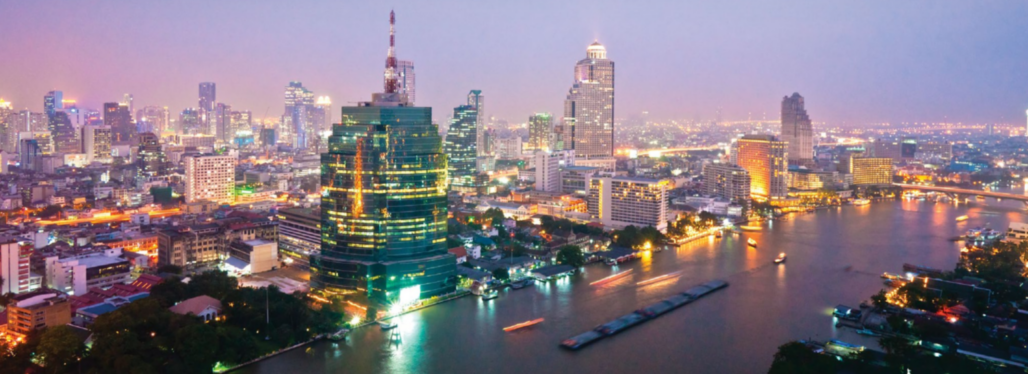Macau perante a concorrência regional (Singapura, Tailândia)
jun25
Macau, Japan and Singapore. Three vastly different gaming jurisdictions; two highly developed and one with massive potential. Gaming law expert Bruno Ascenção gives AGB a look at some of the highlights of each, derived in part from his LL.M studies in Gaming Law & Regulation with the University of Nevada, Las Vegas (UNLV).
Jun25 (Ben Lee)
Macau with a population of just 700,000 squeezed into just 33 sq. kms, saw 35 million visitors serviced by just 43,000 hotel rooms in 2024. Its 30 casinos generated gross gaming revenue (GGR) of US$28.3 billion in the same year.

The oft-touted Las Vegas saw 41 million visitors spread over 150,211 hotel rooms, losing US$8.8 billion last year in circa 150 casinos.
Regionally, Singapore has GGR of $4.3 billion generated by just two casinos. Its international visitors numbered 16.5 million in 2024, consisting of 18.7% Chinese, 15% Indonesia, and 0.7% from both India and Malaysia, spread over 73,000 hotel rooms.
Thailand received 35.5 million international visitors in 2024, with the top four origin countries being China (19%), Malaysia (14%), India (6%) and South Korea (5%).
Comparing Macau with Thailand, Macau may boast the same visitor volume, however if you removed the mainland, Hong Kong and Taiwan, the number of international tourists from outside these zones represent a mere 7.7% or 2.7 million, nowhere near Thailand’s well diversified market, nor Singapore’s.
Furthermore, more than half of the visitors to Macau (54% of all tourists) are same-day visitors, who spend only 21% of what overnight visitors do. Excluding gambling, the average per capita spend in 2023 was US$315.
By the same measure, Thailand’s Tourism Authority reported that the average spend per foreign tourist in their country in the same year was around US$1,430, or roughly 4.5 times Macau’s.
Singapore was roughly similar at US$1,512 to Thailand for the same period.
Thailand
Thailand is unique in that despite the absence of legal casinos, it is already in many senses of the word, a well-developed casino market.
By our count, there are some 40-odd casinos ranged across its borders with Myanmar and Laos, most of them targeting the middle-class Thais. They drive, ferry and even fly to reach these varied gaming establishments. And for the ones who love to live life dangerously and couldn’t be bothered making that trip to the nearest border, there are always the underground casinos right smack in the middle of Bangkok.

For the well-heeled, Thailand has been a lucrative source market for decades, with a horde of foreign casinos sending in their private jets in to fetch the VIPs. Most of these foreign casinos set up marketing offices in Thailand. Marketing teams employed by Malaysia, Singapore, Australia, USA and more recently, the operators from Macau.
Not only does Thailand have a well-developed domestic mass market, but also an extremely active VIP segment. On top of its domestic market, the potential to draw international mass and VIP gaming customers to new Thai entertainment complexes is giving the regional gaming executives sleepless nights. The low cost of holidaying there compared with Singapore and Macau, the diversity of existing attractions and sheer breadth of holiday infrastructure are all critical success factors pointing towards a market size, potentially second only to Macau.
Mango Sticky Rice
Singapore was the first to lure in gaming operators with duopolistic licences, yet managed them closely with constraints such as entry levies, limited gaming floor space, active problem gambling measures, as well as ensuring they built every single IR component that was promised. The premise for the turnaround after decades of strict anti-gambling stance was they needed something to boost their tourism industry.
Thailand faces the same sticky situation today. The country knows their locals are/can be keen gamblers and have fought off previous attempts by the former Prime Minister Thaksin Shinawatra followed soon by his sister, Yingluck, to legalise casinos. This latest attempt by yet another Shinawatra represents the best chance yet for the liberalisation of gaming in the country for two reasons: a) the country’s economy is struggling to recover from the pandemic, due to hidden unemployment, declining private investment and widening income inequality, and hence they wanted to emulate Singapore’s success in boosting their tourism sector; and b) casinos never had a chance under the previous king. Now that ten years has passed since his death, his legacy can finally be re-written, with the current king widely believed to be in favour of allowing casinos.
The Thais have followed mostly the Singaporean model, that is, limiting the gaming space, necessitating the build-up of various non-gaming components, etc., but with an unforeseen problem, a savings deposit of at least US$1.5 million for local players.
Most industry observers believe that the minimum savings deposit requirement won’t be there when the Thai parliament finally approves its gaming legislation, perhaps reduced to a much more practical and reasonable threshold. After all, the country does have a recent medical marijuana industry history proposing all the usual ‘tight’ regulations, but which was eventually launched with very little restriction to the point where retail outlets are now on every street corner, even near schools.
Thailand currently has 711,729 hotel rooms. The tourism revenue in 2019 was US$60.5 billion and they are targeting US$105 billion this year, which by all accounts is looking rather precarious. The ruling party believes they need the boost from gaming to turbocharge the industry.
Thailand is attempting to brand their version of the integrated resort as Entertainment Complexes. They have been trying to promote the concept to their local residents as predominantly entertainment complexes whilst playing down the gaming element. The foreign operators see only the mango on top, with the sticky rice base a necessary albeit to be minimised distraction.
https://www.macaubusiness.com/opinion-mango-sticky-rice/
Comments
Post a Comment